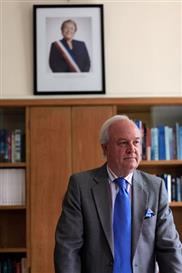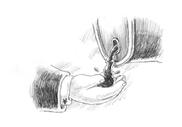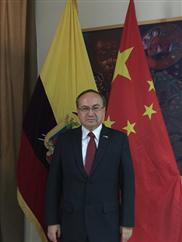China wins chance to lead APEC trade deal
In any case, as Xi said two years ago, “The FTAAP does not go against existing free trade arrangements, which are the potential pathways to realize [its] goals.”
Chinese president's visit marks historic moment, says Ecuador's deputy FM
Chinese President Xi Jinping's state visit to Ecuador marked a historic moment in bilateral ties, Ecuador's Deputy Foreign Minister Fernando Yepez has said.
Chinese president's Ecuador visit opens up new era for bilateral ties
The past two days have seen a fruitful visit to Ecuador by Chinese President Xi Jinping, the first Chinese head of state who have visited the Latin American nation in 36 years.
Xi's LatAm tour highlights region's importance -- Venezuelan expert
Chinese President Xi Jinping's three-country tour in Latin America on Nov. 17-23 underscores the importance China attaches to its cooperation with the region, Venezuelan political analyst Vladimir Adrianza said.
Ties with China offer LatAm chance to modernize economy: Brazilian expert
Latin American countries are forging closer ties with China in the hope that the Asian power can offer a chance for the modernization of their economies, Marcos Troyjo, a Brazilian political scientist, has said.
Chile looks to bridge all distances with China
Since China signed a free trade agreement (FTA) with Chile in 2005 bilateral trade has increased substantially, but there are still challenges.
China-LatAm ties product of globalization
China-Latin America relations do not target the US as many US pundits who believe in the Monroe Doctrine have depicted.
China, LatAm well-matched for cooperation
All in all, China is the largest developing nation and Latin America is the largest developing region. Similar development phases, identical development tasks, economic complementarities and resources potentials will drive bilateral cooperation.
With Washington sidelined, Beijing will be key player at APEC 2016
Emerging Chinese leadership is much needed in these uncertain times. The good news is that China has recently been demonstrating that it is ready to assume a key role in negotiations over the future of the global economy. Get ready to see how this sense of responsibility for the direction of world development pans out in Lima.
Low oil prices make China and Latin America natural allies
The persistent decline in oil prices has seriously impacted the economies of Latin American countries. As political and economic landscapes in Latin America continue to evolve, this situation will offer both challenges and opportunities for cooperation between China and Latin America.
China playing key role in building institutions of ‘global governance 3.0’
China is now constantly deepening its reforms and integrating into the international community. It firmly supports international trade liberalization and opposes trade protectionism. It backs opening-up, connectivity and tolerance while protesting seclusion, isolation and exclusion. It is promoting new global governance with real actions and will be a mainstay in the new era of globalization.
Xi's LatAm trip to usher in new era for bilateral ties
President Xi Jinping's upcoming visit to Latin America (LatAm) is expected to improve the all-round cooperative partnership and usher in a new era of bilateral relations.
Chinese investment received positively in Ecuador
Chinese President Xi Jinping is set to visit Ecuador on the first leg of his three-nation Latin American tour starting Thursday. Xi will be the first Chinese President to visit Ecuador since the two nations established diplomatic ties in 1980. In an interview with Global Times reporter Song Shengxia (GT), Ecuadorian Ambassador to China, Jose Maria Borja (B) suggested that rather than generating bad publicity, Chinese investment in large infrastructure projects is warmly welcomed in Ecuador as well as Chinese financing, hands-on experience and advanced technology.
China, Latin America to enjoy deeper cooperation
Chinese President Xi Jinping’s forthcoming Latin American trip will be a milestone for both sides to deepen their exchanges and cooperation. The UN Economic Commission for Latin America and the Caribbean (ECLAC) holds great expectations from Xi’s visit.
Latin America gives China chance to reset
If it is able to do this, China’s arrival in Latin America will prove that our world is truly becoming multipolar.
‘New normal’ brings change to Latin America
China is intentionally adjusting its economic ties with Latin American countries.
Investment in Latin America benefits all
Latin America’s basic infrastructure is not complete, and China can provide abundant know-how.
A milestone in shaping a better world order
Chinese President Xi Jinping returned home Friday after wrapping up his second visit to Latin America since taking office in March 2013.





